All Content Copyright 2025. All Rights Reserved
Connect with Pristyn Care
Book free appointments with minimum wait-time & verified doctor details
Piles are inflamed collections of tissue in the anal area. Piles appear in the lowermost part of the anus and can cause significant pain and discomfort. Piles that can be felt bulging near the anal opening are known as external piles. On the other hand, piles on the inner part of the anus that cannot be felt are termed internal piles.
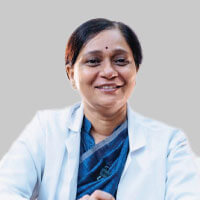
Gynaecologist - 33 Yrs. Exp.
MBBS, MS-Obs & Gynae | Chief Consultant – IVF & Fertility Sciences
Hospital(s): ![]() Pristyn Care
Pristyn Care
Dr. Ila Gupta is a highly respected name in the field of Reproductive Medicine and Assisted Reproductive Technologies (ART), with over 30 years of experience in infertility treatment. She was honored with the prestigious Dr. APJ Abdul Kalam Health Award 2023 in recognition of her exceptional contributions to reproductive health and fertility care. Based in Delhi, Dr. Gupta is widely regarded as one of the best IVF specialists in India, known for her dedication, clinical excellence, and patient-centric approach. Her core areas of expertise include Infertility, In Vitro Fertilization (IVF), Intra-Cytoplasmic Sperm Injection (ICSI), Donor Egg IVF, Surrogacy, and Endoscopy. Over the course of her distinguished career, she has successfully handled more than 5,500 complex cases, offering hope and joy to countless families. Her treatment protocols are individualized and evidence-based, designed to optimize fertility outcomes with compassion and precision. Dr. Ila Gupta has received advanced training from leading global institutes in Germany and France, and is a pioneer in introducing cutting-edge techniques such as Platelet-Rich Plasma (PRP) therapy and Preimplantation Genetic Screening/Diagnosis (PGS/PGD) in India. These innovations have significantly improved success rates—up to 78% in some cases—by ensuring higher chances of healthy, full-term pregnancies with genetically sound embryos. Dr. Gupta’s relentless pursuit of excellence, deep empathy for patients, and commitment to adopting the latest advancements make her a trusted leader in fertility care both in India and internationally

General Surgeon - 26 Yrs. Exp.
MBBS, MS - General Surgery
Hospital(s): ![]() Pristyn Care
Pristyn Care
Dr. Amol Gosavi is an expert and experienced General Surgeon, Advance Laparoscopic Surgeon, Advance Laser Proctologist with an experience of 23 years, and speializes in Proctology, Laparoscopy, Urology, and Vascular. He graduated and obtained his MBBS degree from King Edward Memorial Hospital and Seth Gordhandas Sunderdas Medical College in 1999, and then his postgraduate MS degree from King Edward Memorial Hospital and Seth Gordhandas Sunderdas Medical College in 2004.Currently, he is practicing at Pristyn Care Clinic in Mumbai. He is fluent in English, Hindi, Marathi, and Gujarati and provides compassionate care for all his patients to ensure complete recovery. He has been commended by his patients for his caring nature, hard working attitude, and willingness to be there for them - any time of day and night. He provides treatment for the following - Piles, Fissure, Fistula, Abscess,Pilonidal Sinus,Urethral Stricture, Erectile Dysfunction, Urinary Tract Infection, Urinary Incontinence, Balnitis, Phimosis, Paraphimosis, Umbilical Hernia, Inguinal Hernia, Incisional Hernia, Hiatus, Gallstones, Hydrocele, Vascular, Varicose Veins, Foot Ulcer, Varicocele, and other diseases. He is registered in the Indian Medical Registry with the license number 2001031847. He strives to provide advanced medical care in a comfortable and holistic environment for all patients coming to him for treatment.
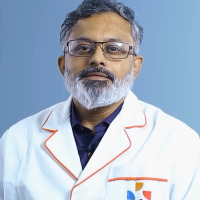
General Surgeon - 26 Yrs. Exp.
MBBS, MS - General Surgery
Hospital(s): ![]() Pristyn Care
Pristyn Care
Dr. Milind Joshi is an expert and experienced General Surgeon, Proctologist, and Laparoscopic Surgeon with an experience of 23 years, and specializes in Proctology, Vascular, Laparoscopy, and Urology. He graduated and obtained his MBBS degree from Grant Medical College and Sir JJ Group of Hospitals, Mumbai in 1999, and then his postgraduate MS degree from Grant Medical College and Sir JJ Group of Hospitals, Mumbai in 2006.Currently, he is practicing at Pristyn Care Clinic in Pune. He is fluent in English, Hindi, Marathi and provides compassionate care for all his patients to ensure complete recovery. He has been commended by his patients for his caring nature, hard working attitude, and willingness to be there for them - any time of day and night. He provides treatment for the following - Piles, Fissure, Fistula, Abscess, Pilonidal Sinus, Anal Polyps, Anal Warts, Rectal Prolapse, Balnitis, Phimosis, Paraphimosis, Umbilical Hernia, Inguinal Hernia, Incisional Hernia, Hiatus, Gallstones, Stent Removal, Cyst Removal, Hydrocele, Vascular, Varicose Veins, Thrombosis, Dvt, Diabetic Foot Ulcer, Foot Ulcer, Varicocele, and other vascular diseases. He is registered in the Indian Medical Registry with the license number 2001103361. He strives to provide advanced medical care in a comfortable and holistic environment for all patients coming to him for treatment.

General Surgeon - 26 Yrs. Exp.
MBBS, DNB-General Surgery
Hospital(s): ![]() Pristyn Care
Pristyn Care
Dr. C.B. Dhamodhara Kumar is an expert and experienced General and Laparoscopic Surgeon with over 20 years of experience. He earned his MBBS from Thirunelveli Medical College, Tamil Nadu, in 2001 and his DNB in General Surgery from Voluntary Health Services, Chennai, in 2011. He has completed fellowships in laparoscopic and gastrointestinal endoscopic procedures, including FIAGES, EFIAGES, and FAGIE. Dr. Kumar has served as a Consultant General Surgeon at Prabhu Polyclinic, Pollachi, and Meenakshi Hospital, Thanjavur. His expertise includes appendectomy, cholecystectomy, hernia repair, trauma surgeries, and advanced endoscopic procedures. He is registered with the Tamil Nadu Medical Council and is a life member of the IMA, ASI, and IAGES. Fluent in English, Hindi, and Tamil, he is known for his excellent patient care and communication skills. Dr. Kumar is committed to providing comprehensive surgical solutions with precision and compassion. He has now joined Pristyn Care, bringing his vast knowledge and dedication to patient well-being. His focus remains on delivering advanced medical care in a supportive and comfortable environment.

General Surgeon - 26 Yrs. Exp.
MBBS, MS-General Surgery
Hospital(s): ![]() Pristyn Care
Pristyn Care
Dr. Pravat Kumar Majumdar is renowned General Surgeon Specialist in Bhubaneswar. He practices at Pristyn Care Clinic, Bhubaneswar.

General Surgeon - 25 Yrs. Exp.
MBBS, MS, DNB- General Surgery
Hospital(s): ![]() Pristyn Care
Pristyn Care
Dr. Naveed Pasha Sattar is an expert and experienced General Surgeons, Laparoscopic Surgeon, Proctologist, Laser Specialist with an experience of 24+ years, and specializes in Laparoscopy, Vascular, Proctology, and Urology. He graduated and obtained his MBBS degree from Bangalore University in 2000, and then his postgraduate MS degree from Rajiv Gandhi university of Health Sciences, Karnataka in 2006 and then earned his DNB in General Surgery from National Board of Examinations, New Delhi in 2007. Currently, he is practicing at Pristyn Care Clinic in Bangalore. He is fluent in Hindi, English, and Malayalam and provides compassionate care for all his patients to ensure complete recovery. He has been commended by his patients for his caring nature, hard working attitude, and willingness to be there for them - any time of day and night. He provides treatment for the following - Piles, Fissure, Fistula, Abscess, Pilonidal Sinus, Anal Polyps, Anal Warts, Urethral Stricture, Erectile Dysfunction, Urinary Tract Infection, Urinary Incontinence, Umbilical Hernia, Inguinal Hernia, Incisional Hernia, Hiatus, Gallstones, Bariatrics, Hydrocele, Varicose Veins, Thrombosis, Dvt, Diabetic Foot Ulcer, Foot Ulcer, Varicocele, and other conditions. He is registered in the Indian Medical Registry with the license number 62374. He strives to provide advanced medical care in a comfortable and holistic environment for all patients coming to him for treatment.
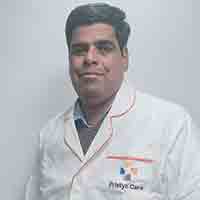
General Surgeon - 25 Yrs. Exp.
MBBS, MS, DNB- General Surgery
Hospital(s): ![]() Pristyn Care
Pristyn Care
Dr. Raja H is an expert and experienced General Surgeons, Laparoscopic Surgeon, Proctologist, Laser Specialist with an experience of 24 years, and specializes in Laparoscopy, Vascular, Proctology, and Urology. He graduated and obtained his MBBS degree from Kilpauk Medical College, Chennai in 2000, and then his postgraduate MS degree from Kilpauk Medical College, The Tamil Nadu Dr. M.G.R. Medical University in 2004, then earned his DNB in General Surgery from National Board of Examinations, New Delhi in 2004. Currently, he is practicing at Pristyn Care Clinic in Bangalore. He is fluent in Hindi, English, and Malayalam and provides compassionate care for all his patients to ensure complete recovery. He has been commended by his patients for his caring nature, hard working attitude, and willingness to be there for them - any time of day and night. He provides treatment for the following - Piles, Fissure, Fistula, Abscess, Pilonidal Sinus, Anal Polyps, Anal Warts, Urethral Stricture, Erectile Dysfunction, Urinary Tract Infection, Urinary Incontinence, Umbilical Hernia, Inguinal Hernia, Incisional Hernia, Hiatus, Gallstones, Bariatrics, Hydrocele, Varicose Veins, Thrombosis, Dvt, Diabetic Foot Ulcer, Foot Ulcer, Varicocele, and other conditions. He is registered in the Indian Medical Registry with the license number 93568. He strives to provide advanced medical care in a comfortable and holistic environment for all patients coming to him for treatment.
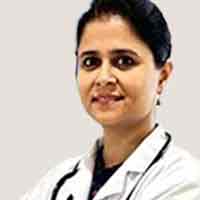
Gynaecologist - 24 Yrs. Exp.
MBBS, MS - Obstetrics & Gynaecology
Hospital(s): ![]() Pristyn Care
Pristyn Care
Dr. Monika Dubey is Cosmetic Gynecologist and Anti Ageing expert. is an expert and experienced Obstetrician, and Gynecologist with an experience of 23+ years, and specializes in Gynaecology. She graduated and obtained her MBBS degree from Banaras Hindu University in 2001, then her MS-Obstetrics & Gynecology from Banaras Hindu University in 2005. Currently, she is practicing at Pristyn Care Clinic in Delhi. She is fluent in Hindi, English and Marathi and provides compassionate care for all her patients to ensure complete recovery. She has been commended by her patients for her caring nature, hard working attitude, and willingness to be there for them - any time of day and night. She provides treatment for the following- She provides treatment for the following - General Gynaecology, Vaginal Itching, Urinary Leakage, Warts, Urinary Infection, Ectopic Pregnancy, White Discharge, General Gynae, Warts Removal, Vaginitis, Vulval Infection, Vaginismus, Vaginal Soreness, Vaginal Tear, Vaginal Pain, Vaginal Irritation, Vaginal Discharge, Vaginal Bleeding, Vaginal Burning, Uti, Spotting, Scanty Periods, Prolonged Period, Rectal Bleeding, Post Menopausal Bleeding, Post Coital Bleeding, I/C, Periods Issue, Pcos, Nausea, Mullerian Uterus, Missed Period, Low Back Pain, Itching, Itching While, Irregular Vaginal Bleeding, Irregular Periods & Vaginal Discharge, Infection, Heavy Bleeding, Dyspareunia, Facial Hair, Dysuria, Dryness, Dysmenorrhea, Dryness Itching, Derma, Delayed Periods, Decreased Mestrual Flow, Amenorrhea, Vaginal Cyst, Abdomen Pain, Irregular Periods, Menopause, Vaginal Infection, Fibroids, Ovarian Cyst,Cervical Inflammation, Pain During Intercourse, Urine Infection, Fibroids, Urinary Problems Treatments, Vaginal Discharge Treatment,Vaginal Dryness, Recurrent Vaginal Infection, Abnormal Vaginal Discharge, Abortion, Weakness, Rectocele Cystocele, Thin Vulva Skin, Labia Correction, Vaginal Rejuvination, Revirginization, Lesions On Labia, Female Infertility, Male Infertility, and several other diseases. She is registered in the Indian Medical Registry with the license number 75212. She strives to provide advanced medical care in a comfortable and holistic environment for all patients coming to her for treatment.
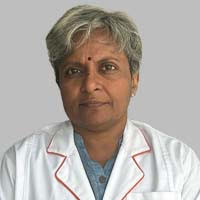
General Surgeon - 24 Yrs. Exp.
MBBS, MS-General Surgery
Hospital(s): ![]() Pristyn Care
Pristyn Care
Dr. Sathya Deepa is an expert and experienced General Surgeon, Laparoscopic Surgeon and Proctologist with an experience of 15 years, and specializes in Proctology, Laparoscopy, and Urology. She graduated and obtained her MBBS degree from The Tamil Nadu Dr. M. G. R. Medical University, Chennai in 2001, and then her postgraduate MS degree from The Tamil Nadu Dr. M. G. R. Medical University, Chennai in 2008. Currently, she is practicing at Pristyn Care Clinic in Coimbatore. She is fluent in English, Hindi, and provides compassionate care for all her patients to ensure complete recovery. She has been commended by her patients for her caring nature, hard working attitude, and willingness to be there for them - any time of day and night. She provides treatment for the following - Piles, Fissure, Fistula, Abscess, Pilonidal Sinus, Urethral Stricture, Erectile Dysfunction, Urinary Tract Infection, Urinary Incontinence, Balnitis, Phimosis, Paraphimosis, General Uro, Umbilical Hernia, Inguinal Hernia, Incisional Hernia, Hiatus, Gallstones, Bariatrics, Stent Removal, Cyst Removal, Hydrocele, and several other conditions. She is registered in the Indian Medical Registry with the license number 67249. She strives to provide advanced medical care in a comfortable and holistic environment for all patients coming to her for treatment.
Piles are inflamed collections of tissue in the anal area. Piles appear in the lowermost part of the anus and can cause significant pain and discomfort. Piles that can be felt bulging near the anal opening are known as external piles. On the other hand, piles on the inner part of the anus that cannot be felt are termed internal piles.
As the name suggests, piles that grow internally and cannot be seen are known as internal piles. They are more like protrusions inside the anus, on the walls of the anal canal. Internal piles are classified into four grades:
External piles are lumps on the outer region of the anal area. External piles can be felt by the patient or visible to the patient or a doctor. You may also feel these as water-filled swellings around the anal opening. With external piles, you can experience symptoms like anal itching, one or more hard and tender lumps near the anus, and pain near the anal area, primarily while sitting.
Several factors are responsible for the development of piles. Piles occur due to weakness of the tissues that support the blood vessels in the anal area and are commonly associated with the following:
Doctors diagnose piles by enquiring about the patient’s symptoms and clinical history and by conducting a physical examination. During the physical examination, the anal area is examined for any bulging piles through the anal orifice.
A rectal examination can also be performed to diagnose piles. During the rectal examination, the patient lies on his left side with knees folded onto the chest. The doctor inserts a gloved finger through the anal orifice and inspects the walls of the rectum and anus for swellings and other abnormalities.
Anoscopy or proctosigmoidoscopy is done to visualize the rectum and anus further and rule out causes of rectal bleeding other than piles. In this procedure, the surgeon inserts a tube into the rectum through the anus and examines the region using a light. In addition, blood tests such as hemoglobin, complete blood counts, blood coagulation studies, and liver function tests are also conducted as additional tests.
Doctor's treatment plan for piles depends on the severity of the symptoms. Some of the ways to treat piles include:
Piles will usually go away on their own, but if they don’t, you might require a medical procedure to deal with the issue. Non-surgical options to treat piles include:
Surgery is the most effective method to treat piles. It is used to relieve symptoms of piles and when other treatments haven’t worked or the piles keep bleeding. There are various types of surgery for piles, which include the following.
Laser surgery is one of the safest and most advanced surgeries to treat piles. It uses high-energy light to cut or burn the affected tissue during surgical procedures. Since laser surgery is a precise procedure, it leaves no impact on the surrounding tissues and the anal sphincters. Some of the benefits that make laser surgery the best treatment for piles include the following:
Some of the ways to prevent the occurrence of piles and reduce the intensity of the condition are :
A proctologist or colorectal surgeon is a specialist medical doctor trained in the branch of medicine dealing with the diseases of the anus, rectum, and sigmoid colon. Thus, a proctologist can easily and effectively diagnose and treat piles. Here are some things you need to consider before selecting your doctor for piles treatment in India:
Educational requirements
It is important for a proctologist to earn a bachelor's degree and qualify for the Medical College Admission Test (MCAT). After qualifying for MCAT, it is crucial to get admission to medical school and graduate with a medical degree. After graduation from medical college, it is necessary for a proctologist to get a Medical Doctor or M.D. degree. 8 years of education and training are required to become a proctologist. For a potential proctologist, training sessions through residencies and fellowships are also required.
Consider The Proctologist's Experience
When selecting a proctologist for your pile's treatment in India, considering their experience is essential. A well-experienced proctologist will ensure that the procedure chosen to treat piles is suitable and yields the desired result. In addition, it is essential to know how long your doctor has been in practice and how many successful cases of piles they have performed.
Uncover professional reprimands
Knowing if your doctor has been sanctioned by a professional licensing board should be an essential part of your search.
Skills and Qualities
Some of the skills and qualities that a proctologist is expected to possess include:
Track Record
In most areas, you can contact the medical licensing authority and ask to run a search for any disciplinary cases taken against your doctor. In addition, if you know anyone who is a patient of that doctor, ask them for their honest opinion of the care and attention they are receiving.
Qualifications of medical specialists who can treat piles include:
When you start to see that blood stains or blood is coming along with the stool during a bowel movement or when you have already been suffering from piles for over a week, and it did not improve after you have tried home remedies, you should consult with a proctologist at your nearest piles hostpital as soon as possible. In addition, you should contact a medical professional for immediate help when you see that you are having large amounts of rectal bleeding, faintness, lightheadedness, etc.